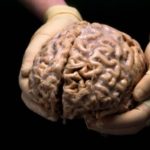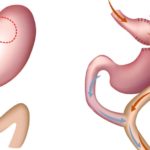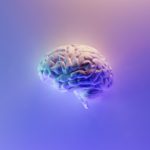Losing your memory – why do elderly people face memory problems?
As time goes by and we become older, many changes happen to our bodies. The immunity tends to become low and people are more likely to encounter many infectious and non-infectious diseases as well as age-associated disorders. Losing memory is one of the major challenges of the old age group. Most elderly people experience either short or long-term memory loss. Unlike other disorders, memory loss is considered irreversible. However, it is true that memory loss is not a part of normal aging. It has some other reasons.
Types of memory loss
Losing your memory can be of two types: temporary memory loss or permanent memory loss.
Temporary memory loss refers to the inability to remember. It is considered a short-term memory loss. The incidents, names, places, or whatever we forget for an instant, will be retrieved or remembered after a while. As we have said earlier, memory loss is not necessarily age-induced – it can affect any individual of any age.
Permanent memory loss is a much more serious disorder that occurs due to damage in the brain cells.
Brain
There are two main groups of cells in the brain – glial and nerve cells (neurons). The main objective of glial cells is to form a myelin sheath that is used to that maintain homeostasis, support and protect neurons. Nerve cells are considered to be the most important cells in the brain. Neurons are connected to each other via synapses and form neural networks. Within these networks, they are able to communicate with each other by emitting electrical and chemical signals that are transmitted via synapses. The brain consists of many portions responsible for different functions – behavior, learning ability, physiology, etc. Hippocampus is the region of the brain associated with memory and remembrance.
Memory
Memory is a process of encoding, storing, and retrieving information. Information is stored in neurons and synapses. There may be some natural or unnatural changes that will alter synaptic transmission between neurons. This ineffective communication within neural networks can cause memory problems.
Reasons behind memory problems
What is the reason behind the memory loss? Why are we losing memory? We all know that as we become older, our body functions start decreasing due to the number of damages caused to cells and tissues. Brain cells are also age-sensible. The severity of memory loss depends on the intensity of cell damage on the Hippocampus. There may be many reasons behind it, some of them are:
- Insufficient nutrition of brain cells due to decreased blood flow to the brain
- Impaired growth of brain cells due to the lack of certain hormones that play an important role in the protection and repairing of neurons
- Due to any accidents like stroke, blocks, thrombosis, or other brain injuries
- It also occurs because of some diseases like Alzheimer’s disease, amnesia, dementia, or Parkinson’s disease
Recognizing the problem
Most of elderly people are worried about their physical and mental inabilities and consider themselves as a disturbance to others. They are always concerned about their unexplained forgetfulness. These thoughts lead to many psychological or emotional factors like stress, anxiety, tension, fear, and some sort of inferiority complexes. Emotional disturbances alter normal physiological and hormonal functions and may lead to further damage of neural connections. This leads to an increase in the incidence of memory loss and one’s condition becomes worse.
Usually, the inability to remember or forget things are the only visible symptoms of more serious disorders. If the memory loss happens due to any illness like Alzheimer’s disease or dementia, an individual may show signs and symptoms according to the characteristics of the specific disease. However, there are many cases when a reason for memory loss cannot be scientifically diagnosed.
Sometimes we can assess the brain’s memory function by X-rays study, CT scan, MRI scan if the problem was caused by an accident like stroke, thrombosis, or blocks. Usually, there are intellectual tests conducted to determine the type and severity of memory loss.
Treatment
In fact, there is no guaranteed treatment preventing memory loss. The treatment only delays the process of losing memory.
Recent studies show that heredity and our lifestyle play an important role in the occurrence of unnatural memory loss. Early treatment and changes in lifestyle can do a lot to prevent this. Eating food rich in antioxidants is a good way of improving memory power by neutralizing free radicals of oxygen that cause serious damage to brain cells. Garlic, ginger, apple, grapes, red wine, and blueberries are natural sources of antioxidants, so it is beneficial to introduce them into your daily diet.




























